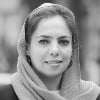The talks between high-ranking delegations from the Islamic Republic of Afghanistan and the Taliban continued for the second day in Qatar and focused on key demands of both sides.
Abdullah Abdullah, head of the High Council for National Reconciliation, who chairs the Republic team in the talks said he expects a “positive and constructive” outcome from the talks.
Sources familiar with the matter said that in this latest round the Taliban has insisted on the release of 7,000 prisoners and the removal of its leaders’ names from the UN blacklist, and the Republic delegation has emphasized the need for a roadmap for peace in Afghanistan.
The meeting between the 7-member Republic team led by Abdullah Abdullah, and the 7-member Taliban delegation led by Abdul Ghani Baradar, the deputy leader of the group, was held behind closed doors.
“The presence of a mediator in the negotiations, political participation and other matters were the main topics of discussion,” said the reconciliation council’s spokesman Fraidoon Khwazoon. “Today, too, the negotiations will continue and we will issue a statement at the end.”
The State Ministry for Peace Affairs said an effort will be made to find ways to expedite peace efforts.
“We expect that as a result of these talks the Taliban will stop the massacre of the people and show an active presence at the negotiating table,” said Mohammad Amiri, a presidential spokesman.
Taliban leader Mullah Hibatullah Akhundzada in an Eid message on Sunday emphasized the need for a political solution to the Afghan crisis.
He mentioned the Taliban's takeover of districts but said the group's support for a political solution is "serious."
“The Taliban does not see consensus within the government. They don’t see a clear plan. Back in Kabul, there is a lack of clear plan. This is where the Taliban can gain more advantage (in the talks),” said Abdul Ahad Sar Tayyib, an analyst.
“Based on the knowledge I have about the Taliban, I don’t think the Doha meeting will have an outcome,” said Zahir Salangi, an MP from Parwan.
Hibatullah’s message reads that the two sides are still wasting the opportunity for peace. He reiterates that the Taliban is committed to freedom of speech within the framework of Islamic orders and national interests of the country. He asks journalists to adjust their activities based on these two points.
But the acting minister of information and culture, Qasim Wafaeezada, said on Sunday that some radio stations have changed to a “tool for Taliban propaganda” in areas under their influence.
“You know and have information that Maiwand Radio in Shindand (district in Herat) has changed into radio sharia and only airs Taliban’s messages,” he said. “Radio Paiman in Baghlan, Radio Sima-e-Solkh in Samangan, Radio Nawbahar in Balkh, Radio Jaihoon in Kunduz are the networks that with the arrival of Taliban, their female workers have been dismissed, their activities have been prevented, and have turned into Taliban radio by putting pressure on them,” he said.
Akhundzada has pledged that the Taliban will work to protect embassies, foreign organizations and investors. He has said that no one will be allowed to pose threat to other countries from Afghanistan.



Comment this post